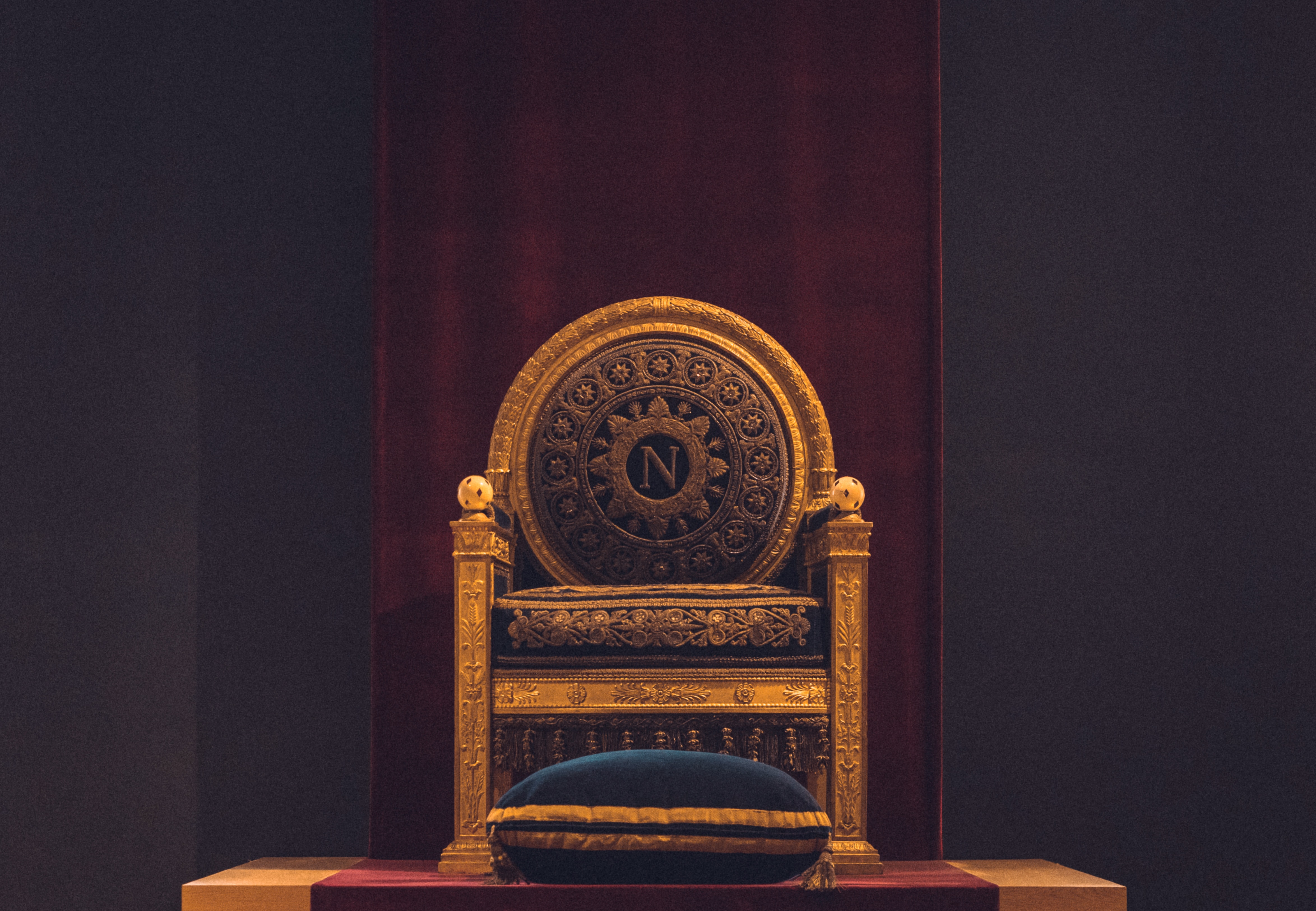Go Ask Alice, Book Review
RECENZIE SCRISĂ DE RĂZVAN ANTON. A apărut inițial pe Teoriile unui blogger.
 Go Ask Alice is the story of a teenager who gives in to the temptation of drugs. It was originally published in 1971, having an ''Anonymous'' author. A simple Google search however, reveals the fact that it was actually written by Beatrice Sparks. Furthermore, the novel is up to the present date considered controversial as to its true value as a diary. Critics claim that most of the diary, if not all of it, was invented by Sparks, who originally stated that she was only the editor of the diary which belonged to one of her patients.
Controversy aside, it is not really a matter of real importance if the diary is true or merely a work of fiction. Be it a work of fiction, it still deals with real issues which teenagers have to face nowadays. The book is an interesting insight into the causes which lead to trying drugs, getting addicted and being, unfortunately on a highway to hell, with only one [predictable] outcome. Therefore, the novel deals with:
- The communication issues between teenagers and their parents: the protagonist [whose name is not revealed throughout the novel, but whom I shall call ''Alice'' for convenience] constantly feels the need to be listened to, instead of being lectured on her ''immature'' behaviour, to be understood, to be part of the family, rather than ''the odd one out''. This happens to a lot of teenagers, which turns Alice into a symbol of those who feel insecure, unloved, loathed. A little time and a bit more patience from the parents could help prevent such issues.
- The rejection that teenagers often feel towards themselves. Most teenagers feel like it is the end of the world if they get a pimple, feel rejected or unwanted at some point. With some of them, this becomes a habit which can lead to depression, drug use and all the misfortunes that derive from it. This is exactly what happens to Alice. Ever since we first meet her, we are acquainted with the fact that she is not happy with the way she looks (she constantly wants to lose weight and is on the verge of anorexia), she hates herself and she feels depressed about everything, especially about her parents' constant nagging.
- The side-effects of drug addiction. Go Ask Alice was banned in various public libraries because of dealing with issues such as extensive drug use, sex, rape, prostitution, drug dealing etc. The fact that this book was banned does not mean that these issues did not, or do not exist, for that matter. Running away from home, begging for money in the street or going into a mental illness hospital would also be worth mentioning at this point...
The paradox is that this book is not a chef-d'oeuvre, irrespective whether we look at it as a ''real diary'' or a work of fiction.
Were it a real diary, it is kind of difficult to believe that someone who accidentally got into drugs using LSD and later was introduced to heroin could quit both without great efforts, but would be so much addicted to pot, which is known to be the ''entry-level'' drug, even in the literature. Likewise, although it is supposed to mirror the behaviour of a teenager, which is typically characterized by shifting moods, it is impossible for someone to experience such contradictory feelings towards her family, even under the influence of drugs. Along the same line, no parents could be as passive as the ones of Alice. It seems like they always observe, but never really react. This would surely not happen in real life.
Were it a work of fiction, it surely could have been better. The effects of drug use and the trips are so typically described that sometimes it makes you wonder if all the materials available on drug tripping were compiled into one big diary.
Nevertheless, the main focus of Go Ask Alice is not whether it is reality or fiction, whether it holds a well-constructed plot or not, whether this Beatrice Sparks could have done a better job or not. The original aim of Go Ask Alice was to act as an eye-opener and raise awareness on the issue of drug use and its effects. Even if Alice did not exist as a person, she exists in every drug user around the world. They all share the same uncertainties, the same faults, the same cravings, and some of them, a lot of them have shared the same tragic end. And this is maybe the reason why Go Ask Alice was still in print in 2014, although it was first published 43 years before that date.
Go Ask Alice is the story of a teenager who gives in to the temptation of drugs. It was originally published in 1971, having an ''Anonymous'' author. A simple Google search however, reveals the fact that it was actually written by Beatrice Sparks. Furthermore, the novel is up to the present date considered controversial as to its true value as a diary. Critics claim that most of the diary, if not all of it, was invented by Sparks, who originally stated that she was only the editor of the diary which belonged to one of her patients.
Controversy aside, it is not really a matter of real importance if the diary is true or merely a work of fiction. Be it a work of fiction, it still deals with real issues which teenagers have to face nowadays. The book is an interesting insight into the causes which lead to trying drugs, getting addicted and being, unfortunately on a highway to hell, with only one [predictable] outcome. Therefore, the novel deals with:
- The communication issues between teenagers and their parents: the protagonist [whose name is not revealed throughout the novel, but whom I shall call ''Alice'' for convenience] constantly feels the need to be listened to, instead of being lectured on her ''immature'' behaviour, to be understood, to be part of the family, rather than ''the odd one out''. This happens to a lot of teenagers, which turns Alice into a symbol of those who feel insecure, unloved, loathed. A little time and a bit more patience from the parents could help prevent such issues.
- The rejection that teenagers often feel towards themselves. Most teenagers feel like it is the end of the world if they get a pimple, feel rejected or unwanted at some point. With some of them, this becomes a habit which can lead to depression, drug use and all the misfortunes that derive from it. This is exactly what happens to Alice. Ever since we first meet her, we are acquainted with the fact that she is not happy with the way she looks (she constantly wants to lose weight and is on the verge of anorexia), she hates herself and she feels depressed about everything, especially about her parents' constant nagging.
- The side-effects of drug addiction. Go Ask Alice was banned in various public libraries because of dealing with issues such as extensive drug use, sex, rape, prostitution, drug dealing etc. The fact that this book was banned does not mean that these issues did not, or do not exist, for that matter. Running away from home, begging for money in the street or going into a mental illness hospital would also be worth mentioning at this point...
The paradox is that this book is not a chef-d'oeuvre, irrespective whether we look at it as a ''real diary'' or a work of fiction.
Were it a real diary, it is kind of difficult to believe that someone who accidentally got into drugs using LSD and later was introduced to heroin could quit both without great efforts, but would be so much addicted to pot, which is known to be the ''entry-level'' drug, even in the literature. Likewise, although it is supposed to mirror the behaviour of a teenager, which is typically characterized by shifting moods, it is impossible for someone to experience such contradictory feelings towards her family, even under the influence of drugs. Along the same line, no parents could be as passive as the ones of Alice. It seems like they always observe, but never really react. This would surely not happen in real life.
Were it a work of fiction, it surely could have been better. The effects of drug use and the trips are so typically described that sometimes it makes you wonder if all the materials available on drug tripping were compiled into one big diary.
Nevertheless, the main focus of Go Ask Alice is not whether it is reality or fiction, whether it holds a well-constructed plot or not, whether this Beatrice Sparks could have done a better job or not. The original aim of Go Ask Alice was to act as an eye-opener and raise awareness on the issue of drug use and its effects. Even if Alice did not exist as a person, she exists in every drug user around the world. They all share the same uncertainties, the same faults, the same cravings, and some of them, a lot of them have shared the same tragic end. And this is maybe the reason why Go Ask Alice was still in print in 2014, although it was first published 43 years before that date.
 Go Ask Alice is the story of a teenager who gives in to the temptation of drugs. It was originally published in 1971, having an ''Anonymous'' author. A simple Google search however, reveals the fact that it was actually written by Beatrice Sparks. Furthermore, the novel is up to the present date considered controversial as to its true value as a diary. Critics claim that most of the diary, if not all of it, was invented by Sparks, who originally stated that she was only the editor of the diary which belonged to one of her patients.
Controversy aside, it is not really a matter of real importance if the diary is true or merely a work of fiction. Be it a work of fiction, it still deals with real issues which teenagers have to face nowadays. The book is an interesting insight into the causes which lead to trying drugs, getting addicted and being, unfortunately on a highway to hell, with only one [predictable] outcome. Therefore, the novel deals with:
- The communication issues between teenagers and their parents: the protagonist [whose name is not revealed throughout the novel, but whom I shall call ''Alice'' for convenience] constantly feels the need to be listened to, instead of being lectured on her ''immature'' behaviour, to be understood, to be part of the family, rather than ''the odd one out''. This happens to a lot of teenagers, which turns Alice into a symbol of those who feel insecure, unloved, loathed. A little time and a bit more patience from the parents could help prevent such issues.
- The rejection that teenagers often feel towards themselves. Most teenagers feel like it is the end of the world if they get a pimple, feel rejected or unwanted at some point. With some of them, this becomes a habit which can lead to depression, drug use and all the misfortunes that derive from it. This is exactly what happens to Alice. Ever since we first meet her, we are acquainted with the fact that she is not happy with the way she looks (she constantly wants to lose weight and is on the verge of anorexia), she hates herself and she feels depressed about everything, especially about her parents' constant nagging.
- The side-effects of drug addiction. Go Ask Alice was banned in various public libraries because of dealing with issues such as extensive drug use, sex, rape, prostitution, drug dealing etc. The fact that this book was banned does not mean that these issues did not, or do not exist, for that matter. Running away from home, begging for money in the street or going into a mental illness hospital would also be worth mentioning at this point...
The paradox is that this book is not a chef-d'oeuvre, irrespective whether we look at it as a ''real diary'' or a work of fiction.
Were it a real diary, it is kind of difficult to believe that someone who accidentally got into drugs using LSD and later was introduced to heroin could quit both without great efforts, but would be so much addicted to pot, which is known to be the ''entry-level'' drug, even in the literature. Likewise, although it is supposed to mirror the behaviour of a teenager, which is typically characterized by shifting moods, it is impossible for someone to experience such contradictory feelings towards her family, even under the influence of drugs. Along the same line, no parents could be as passive as the ones of Alice. It seems like they always observe, but never really react. This would surely not happen in real life.
Were it a work of fiction, it surely could have been better. The effects of drug use and the trips are so typically described that sometimes it makes you wonder if all the materials available on drug tripping were compiled into one big diary.
Nevertheless, the main focus of Go Ask Alice is not whether it is reality or fiction, whether it holds a well-constructed plot or not, whether this Beatrice Sparks could have done a better job or not. The original aim of Go Ask Alice was to act as an eye-opener and raise awareness on the issue of drug use and its effects. Even if Alice did not exist as a person, she exists in every drug user around the world. They all share the same uncertainties, the same faults, the same cravings, and some of them, a lot of them have shared the same tragic end. And this is maybe the reason why Go Ask Alice was still in print in 2014, although it was first published 43 years before that date.
Go Ask Alice is the story of a teenager who gives in to the temptation of drugs. It was originally published in 1971, having an ''Anonymous'' author. A simple Google search however, reveals the fact that it was actually written by Beatrice Sparks. Furthermore, the novel is up to the present date considered controversial as to its true value as a diary. Critics claim that most of the diary, if not all of it, was invented by Sparks, who originally stated that she was only the editor of the diary which belonged to one of her patients.
Controversy aside, it is not really a matter of real importance if the diary is true or merely a work of fiction. Be it a work of fiction, it still deals with real issues which teenagers have to face nowadays. The book is an interesting insight into the causes which lead to trying drugs, getting addicted and being, unfortunately on a highway to hell, with only one [predictable] outcome. Therefore, the novel deals with:
- The communication issues between teenagers and their parents: the protagonist [whose name is not revealed throughout the novel, but whom I shall call ''Alice'' for convenience] constantly feels the need to be listened to, instead of being lectured on her ''immature'' behaviour, to be understood, to be part of the family, rather than ''the odd one out''. This happens to a lot of teenagers, which turns Alice into a symbol of those who feel insecure, unloved, loathed. A little time and a bit more patience from the parents could help prevent such issues.
- The rejection that teenagers often feel towards themselves. Most teenagers feel like it is the end of the world if they get a pimple, feel rejected or unwanted at some point. With some of them, this becomes a habit which can lead to depression, drug use and all the misfortunes that derive from it. This is exactly what happens to Alice. Ever since we first meet her, we are acquainted with the fact that she is not happy with the way she looks (she constantly wants to lose weight and is on the verge of anorexia), she hates herself and she feels depressed about everything, especially about her parents' constant nagging.
- The side-effects of drug addiction. Go Ask Alice was banned in various public libraries because of dealing with issues such as extensive drug use, sex, rape, prostitution, drug dealing etc. The fact that this book was banned does not mean that these issues did not, or do not exist, for that matter. Running away from home, begging for money in the street or going into a mental illness hospital would also be worth mentioning at this point...
The paradox is that this book is not a chef-d'oeuvre, irrespective whether we look at it as a ''real diary'' or a work of fiction.
Were it a real diary, it is kind of difficult to believe that someone who accidentally got into drugs using LSD and later was introduced to heroin could quit both without great efforts, but would be so much addicted to pot, which is known to be the ''entry-level'' drug, even in the literature. Likewise, although it is supposed to mirror the behaviour of a teenager, which is typically characterized by shifting moods, it is impossible for someone to experience such contradictory feelings towards her family, even under the influence of drugs. Along the same line, no parents could be as passive as the ones of Alice. It seems like they always observe, but never really react. This would surely not happen in real life.
Were it a work of fiction, it surely could have been better. The effects of drug use and the trips are so typically described that sometimes it makes you wonder if all the materials available on drug tripping were compiled into one big diary.
Nevertheless, the main focus of Go Ask Alice is not whether it is reality or fiction, whether it holds a well-constructed plot or not, whether this Beatrice Sparks could have done a better job or not. The original aim of Go Ask Alice was to act as an eye-opener and raise awareness on the issue of drug use and its effects. Even if Alice did not exist as a person, she exists in every drug user around the world. They all share the same uncertainties, the same faults, the same cravings, and some of them, a lot of them have shared the same tragic end. And this is maybe the reason why Go Ask Alice was still in print in 2014, although it was first published 43 years before that date. 







